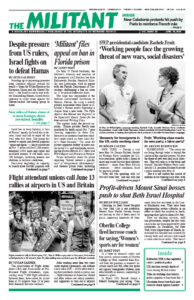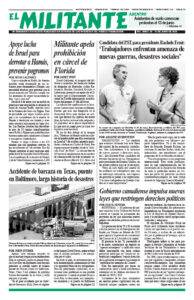Facing a new cross-border surge by Moscow’s army in the Kharkiv region of northeastern Ukraine, the country’s tenacious defenders have pushed the invading forces back. Ukrainian forces have recaptured lost ground in border towns through intense street fighting against Russian infantry. The “human wave” warfare imposed by Moscow’s military brass has led to extensive losses by its troops. But more Russian units are massing across the border.
The Kremlin has also stepped up air attacks on civilian targets in Kharkiv, Ukraine’s second-largest city. In the deadliest incident in several weeks, 18 people were killed and 48 injured May 25 by a Russian strike against a large hardware and garden store. Two massive glide bombs, timed for a sunny afternoon when nearly 200 people were inside, caused a huge fire there. Two days earlier, seven people were killed and dozens injured when a Russian missile hit a printing plant.
Russian aerial assaults on Kharkiv, only 25 miles from the border across from the Russian city of Belgorod, are aimed at demoralizing residents and making the city unlivable. Deadly glide bombs — big, cheap Soviet-era explosives retrofitted with winglets and guidance systems — are being launched daily by warplanes 30 to 40 miles away inside Russian airspace.
Washington has ordered Kyiv not to deploy U.S.-supplied weaponry for attacks inside Russia.
While some residents have decided to leave Kharkiv, most are reacting with courage and resilience, adapting to keep up their everyday life. City authorities are moving more facilities underground, beginning with schools.
In heavy battles May 27 near the devastated town of Vovchansk, 45 miles northeast of Kharkiv, Russian forces suffered some 1,500 casualties that day alone. They also lost 21 tanks and a number of other armored vehicles and artillery pieces.
Sergei Mamayev from the 9th Motor Rifle Regiment was one of the scores of Russian soldiers taken as prisoners of war. In a video he explained that Russian commanders forced poorly trained troops into intense gunfire, where they suffered heavy losses. Captured survivors received good treatment from Ukrainian forces, he said.

